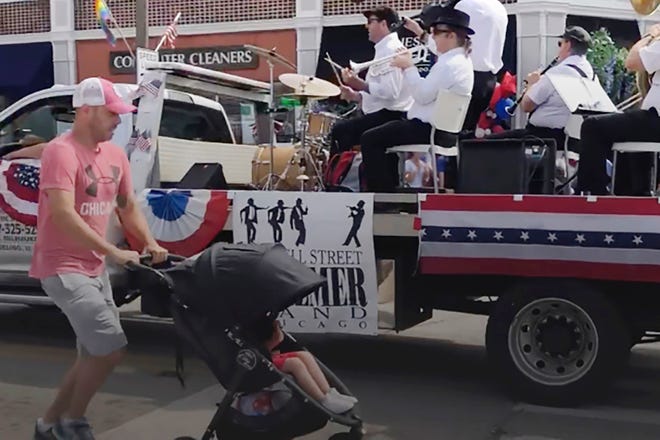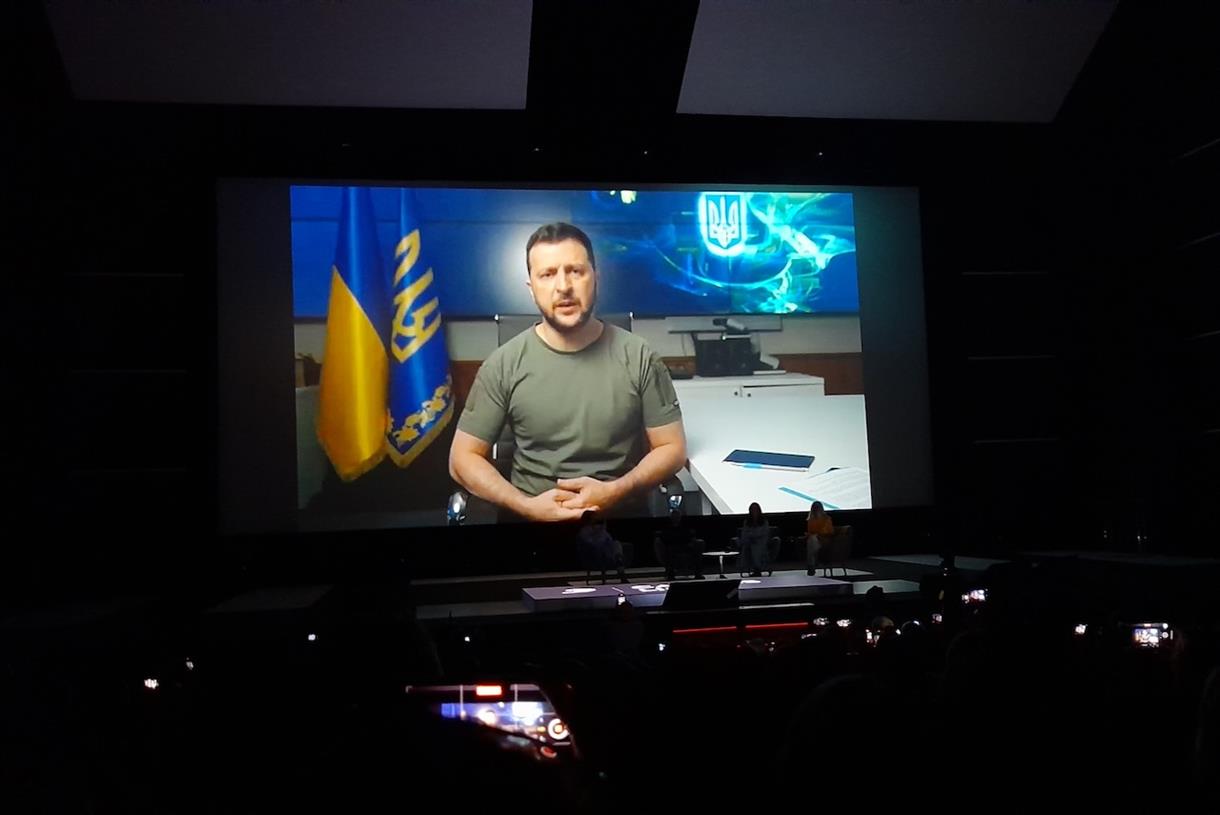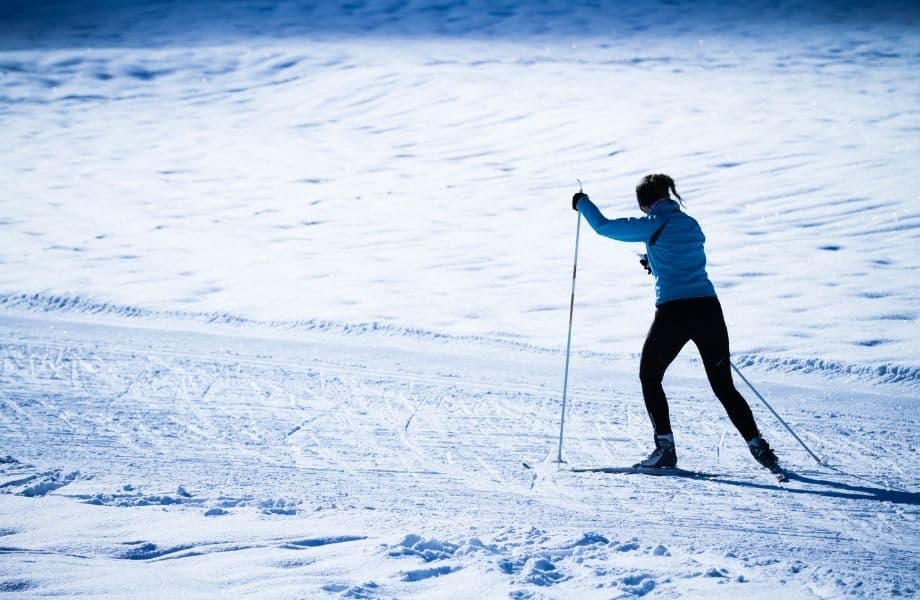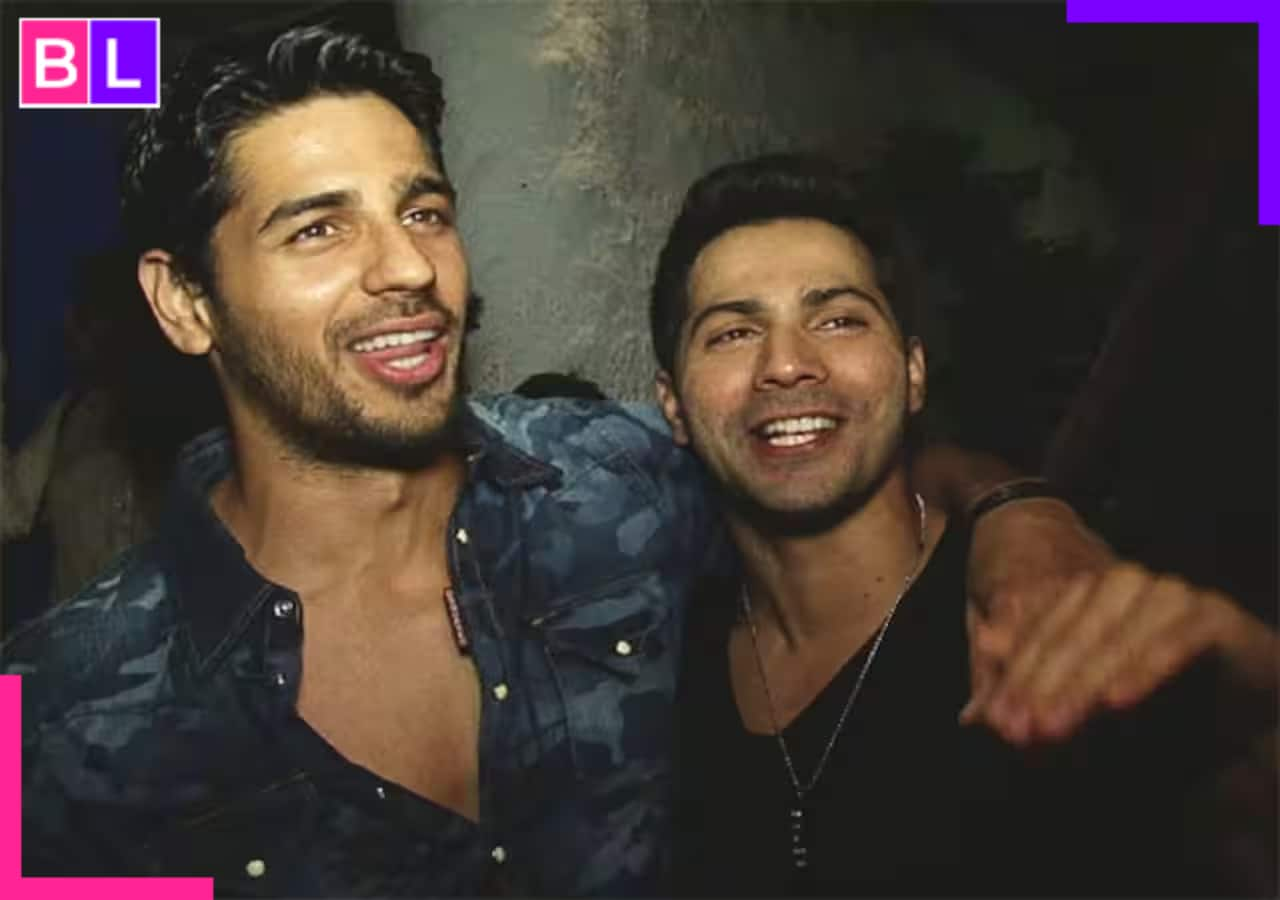Howard Prager, 66, and his klezmer band were set up Monday morning in chairs on a slow-moving flatbed truck as they pulled into the lineup for Highland Park’s Fourth of July parade.
There hadn’t been a parade for three years, since before the pandemic. “People were so happy to be out,” he told USA TODAY.
Maxwell Street Klezmer Band launched into an upbeat tune, a song made for weddings and celebrations. That’s when they started seeing people running.
At first, Prager thought there must be a celebrity or something in the parade they were running to see.
“Then I saw panic on their faces,” he said. “We saw moms and dads with strollers. We saw adults. We saw young people. And they’re all coming toward us.”
Six people were killed and dozens more were injured Monday after a gunman opened fire on the parade around 10 a.m. in Highland Park, a suburb north of Chicago. Residents were warned to shelter in place throughout the day as a search unfolded. Authorities said a person of interest was taken into custody Monday evening.
‘I grabbed my kid and ran’:6 dead, dozens injured in shooting at July 4th parade in Chicago suburb
The shooting turned the family-friendly event into a crime scene, with abandoned lawn chairs, wagons and bikes scattered along the parade route.
Alexander Sandoval, 39, a contractor, shook as he recounted the scene with his 5-year-old son, his partner and her 6-year-old daughter. He had set up chairs in front of the stage at 7 a.m., three hours before the festivities began.
“When everything started happening, we thought it was the Navy saluting the flag,” he told USA TODAY. “Shots rang out. I grabbed my kid and ran.”
The parade, part of a daylong celebration, is a community institution in Highland Park, an affluent Chicago suburb know for its leafy suburban streets.
The Illinois State Library’s digital archives show annual pictures from at least as far back as the mid-1960s, floats towed behind station wagons. In one, the historical society poses. In another, a mobile Iwo Jima statue rolls as an honor guard stands at attention.
The Maxwell Street band has been playing with a growing cast of members since 1983, according to their web site. Along with weddings and bar mitzvahs, the band’s site says it has toured as far as Carnegie Hall and Europe. The band lists a varying cast of more than 20 members. For the parade setup, Prager said, they played with seven: violin, trombone, clarinet, trumpet, an electric piano, drums – and Prager, on the tuba.
The parade takes a dogleg route, down the street next to the Highland Park’s Public Library. At the next block, where the storefronts of Central Avenue begin, the parade turns the corner for its run down Highland Park’s main drag, where the shooting began.
At about 10:15, the band launched into a song Prager’s sheet music calls “Freilechs fun der chuppeh” – freilech, Prager said, meaning a joyous person; the chuppeh, or chuppah, the canopy for a Jewish wedding ceremony.
They hadn’t yet reached the corner of Central Avenue when they saw the people running. “I recognized and heard pops of the gun,” he said, “and thought, oh my gosh, this is something serious.”
“You’ve seen these disaster movies and stuff, where people are running. It felt just like that,” he said. “Like we were in the middle of that. People running past us.”
They needed to get out of there, but their truck was boxed in. The driver wasn’t sure where to go. Finally, in an opening in the crowd, they turned around and got back to the starting point, he said.
Numb, in shock and not sure what to do next, they did what bands do: They headed to their next gig, in Skokie. But that too had been canceled — like so many events nearby.
By evening, Prager was speaking on behalf of his bandmates and thinking about how the shooting had changed the Fourth of July.
“I just want to see something that brings us all together and makes us all whole again,” he said. “See this country come back together and realize we all believe in liberty freedom and peace for all.”

















Discussion about this post